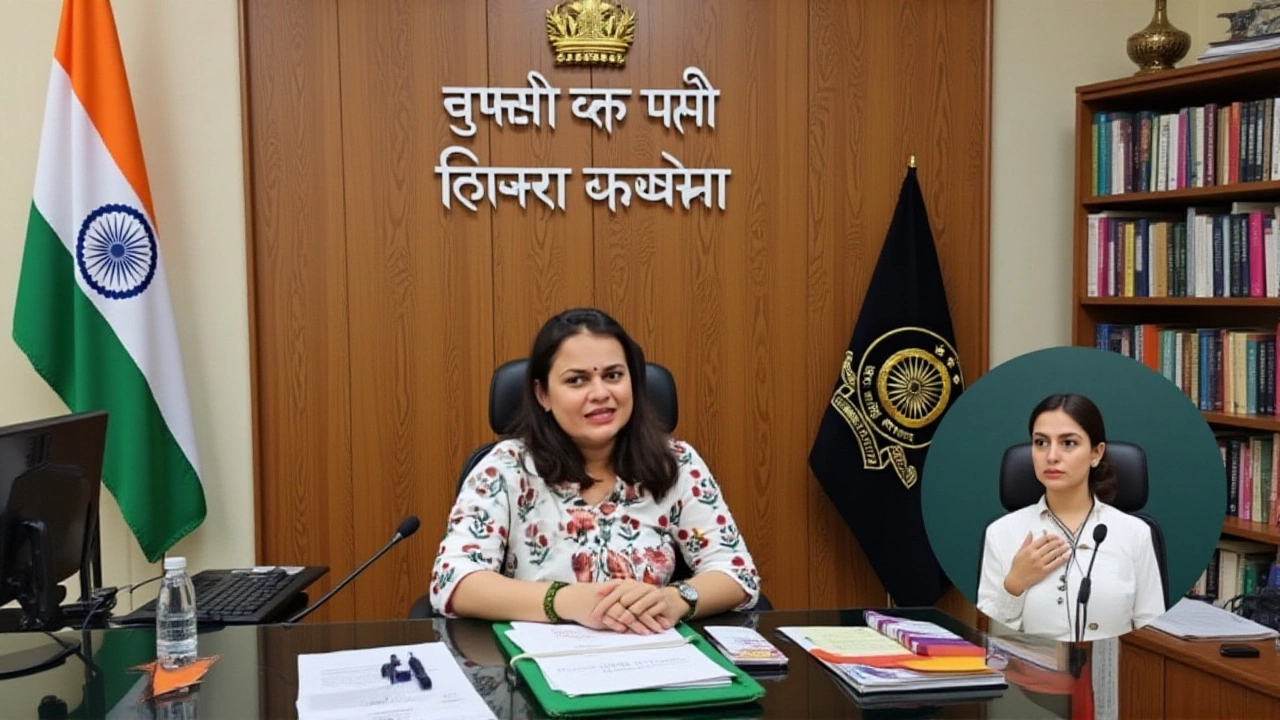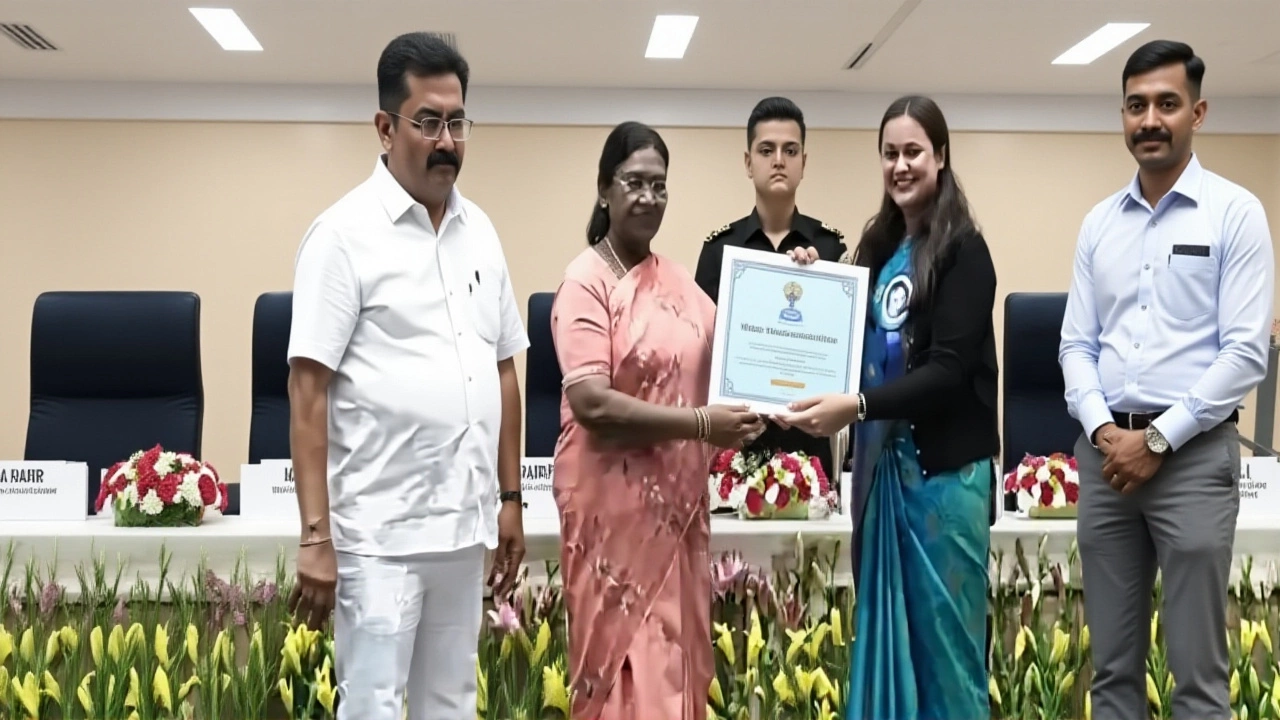On August 9, 2022, police in Rajasthan arrested a young man from Dungarpur for impersonating Tina Dabi, IAS officer and District Collector of Jaisalmer on WhatsApp — all to trick government officials into sending Amazon gift cards. The scheme, which relied on flawless English messages and Dabi’s official photo as a WhatsApp profile picture, exposed a chilling vulnerability in how public servants verify digital communication. What made it especially brazen? The fraudster didn’t just pick any name — he targeted one of India’s most prominent civil servants, whose historic UPSC achievement had recently placed her in the national spotlight.
How the Fraud Unfolded
It began on August 8, 2022, when Sunita Choudhary, Secretary of the Urban Improvement Trust (UIT), a senior Rajasthan Administrative Service (RAS) officer based in Jaipur, received a WhatsApp message from an unknown number. The display picture? Tina Dabi’s official portrait. The message? A polite, grammatically perfect request asking Choudhary to gift Amazon vouchers worth ₹5,000 to ₹10,000. "I thought she had some work," Choudhary later told investigators. "But I don’t use Amazon. That’s when I got suspicious."
Choudhary didn’t respond. Instead, she forwarded the message to her superiors. Within hours, the complaint reached Tina Dabi herself. She confirmed her account had been compromised — no official communication from her ever included requests for gift cards. Within 24 hours, the Jaisalmer Superintendent of Police launched a cyber investigation. Using WhatsApp metadata and call detail records, the team traced the number to a mobile device registered in Dungarpur.
The Arrest and Investigation
By the morning of August 9, 2022, officers from Dungarpur Police had located and arrested the suspect — a 22-year-old man with no prior criminal record. He reportedly used a fake identity to purchase the SIM card and had no direct connection to Dabi or Choudhary. Investigators believe he scoured public sources — government websites, news articles, social media — to gather photos and titles of high-ranking officials. The flawless English in his messages suggests either fluency or use of AI-assisted translation tools, a growing trend in India’s digital fraud landscape.
"He didn’t just copy a name. He built a persona," said a senior cybercrime officer involved in the case. "He knew the hierarchy. He knew that if he used a Collector’s photo and wrote like a bureaucrat, even seasoned officers would hesitate to question it."
Why This Case Matters
Tina Dabi made history in 2018 as the first woman from the Scheduled Caste community to top the Union Public Service Commission (UPSC) Civil Services Examination. Her appointment as Jaisalmer’s Collector on July 6, 2022, was widely celebrated. But her visibility — once a symbol of progress — became a liability. Fraudsters now target high-profile officials not just for money, but for the credibility their names lend to scams.
Similar cases have surfaced elsewhere: in 2021, a fraudster impersonated Delhi’s Chief Secretary to extract ₹2.3 million from a private firm; in 2020, a fake IAS officer in Uttar Pradesh tricked a district magistrate into transferring funds using a cloned WhatsApp profile. But this case stands out because of its precision. No typos. No urgency. No desperation. Just quiet, professional-sounding requests that bypassed instinctive suspicion.

Government Response and Cybersecurity Shifts
In the wake of the arrest, the Rajasthan Police Department issued a statewide advisory to all government employees: "Never process financial requests via WhatsApp, Telegram, or SMS — even if the sender appears official. Verify through official channels, including verified government email IDs or direct phone calls using known numbers."
Cybersecurity teams from Rajasthan’s Special Task Force are now reviewing digital communication protocols across 33 state departments. They’re also developing a pilot program to assign verified blue-check badges to official government WhatsApp accounts — a move inspired by similar systems in Tamil Nadu and Kerala.
"We used to think fraud was about phishing links or fake bank apps," said Dr. Anjali Mehta, a digital forensics expert at the Rajasthan Police Academy. "Now it’s about trust hijacking. They’re not hacking systems — they’re hacking reputations."
What’s Next?
Authorities are still investigating whether the suspect targeted other officials. So far, only Choudhary has come forward, but forensic analysis of the suspect’s phone has uncovered 17 other government numbers saved in his contacts — including names of additional RAS and IAS officers. Investigators are also probing whether he was working alone or part of a network. His phone contained templates for impersonating at least five different bureaucrats, each tailored to specific departments.
The case has been registered under Sections 66C and 66D of the Information Technology Act, 2000, for identity theft and cheating by impersonation, as well as Section 419 of the Indian Penal Code. If convicted, the accused could face up to three years in prison.

Background: Tina Dabi’s Rise and Public Profile
Tina Dabi’s journey from a small town in Rajasthan to the top of India’s most competitive exam has been widely documented. She studied at Delhi’s Hindu College, cleared the UPSC on her first attempt, and later became a symbol of social mobility for marginalized communities. Her appointment in Jaisalmer came with a mandate to overhaul public service delivery — including digitizing land records and improving access to welfare schemes. Her visibility, however, made her an easy target for fraudsters who know that a Collector’s name carries weight.
"I never imagined my face would be used to scam people," Dabi told reporters after the arrest. "But I’m glad this happened. It’s a wake-up call. We all need to be smarter."
Frequently Asked Questions
How did the fraudster get Tina Dabi’s photo and official details?
The suspect likely sourced her photograph and title from official government websites, news reports, and social media profiles, where her image and credentials are publicly available. Many bureaucrats, especially those who’ve broken barriers like Dabi, are featured prominently in media — making them easy targets for identity theft. No data breach was involved; it was social engineering using open-source intelligence.
Why didn’t WhatsApp’s verification system stop this?
WhatsApp doesn’t verify the identity of users — only phone numbers. A fraudster can easily use a stolen or fake SIM to create a profile with anyone’s photo. The app has no mechanism to confirm if the person behind the number is who they claim to be. That’s why government agencies are now pushing for verified official accounts, similar to how Twitter and Instagram handle public figures.
What should government employees do if they receive a suspicious message?
Never reply, click links, or send money. Immediately report the message to your department’s cyber cell and forward it to the National Cyber Crime Reporting Portal (cybercrime.gov.in). Then, verify the request through a known, official phone number or in person. Most scams rely on urgency or secrecy — if something feels off, pause and check.
Are gift card scams common in India’s bureaucracy?
Yes. Since 2020, over 140 such cases have been reported across India, targeting IAS, IPS, and state service officers. Gift cards are favored because they’re untraceable, easily convertible to cash, and don’t require bank transfers. In 2022 alone, the Cyber Crime Wing of Rajasthan recorded 27 incidents where officials were asked for Amazon, Flipkart, or Google Play gift cards — mostly via WhatsApp.
Has Tina Dabi changed how she communicates since the incident?
Yes. She now uses only one verified government email for official correspondence and has instructed her office to block all WhatsApp messages from unknown numbers. Her team has also started circulating a digital verification guide to district-level officers, listing her official contact details and warning against digital impersonation. "My phone number hasn’t changed," she says, "but my protocol has."
What’s being done to prevent future impersonation of high-profile officials?
Rajasthan is piloting a digital badge system for verified government accounts on WhatsApp and Telegram, with QR-coded verification links tied to official portals. The Union Ministry of Electronics and IT is also considering a national standard for official communication authentication. Meanwhile, training modules on digital fraud are being integrated into civil service induction programs across states.
